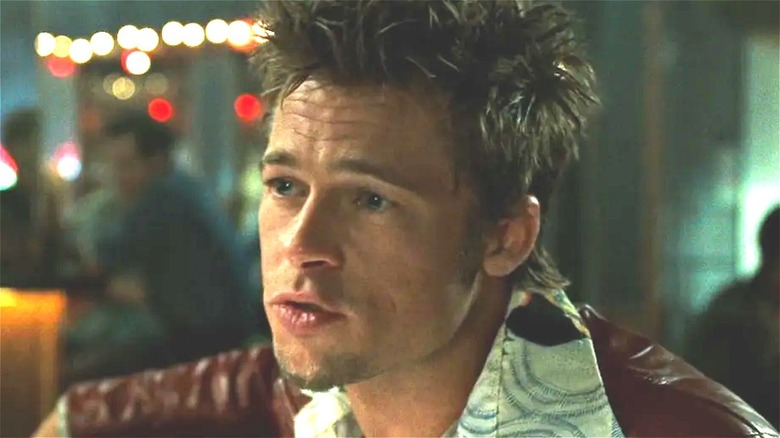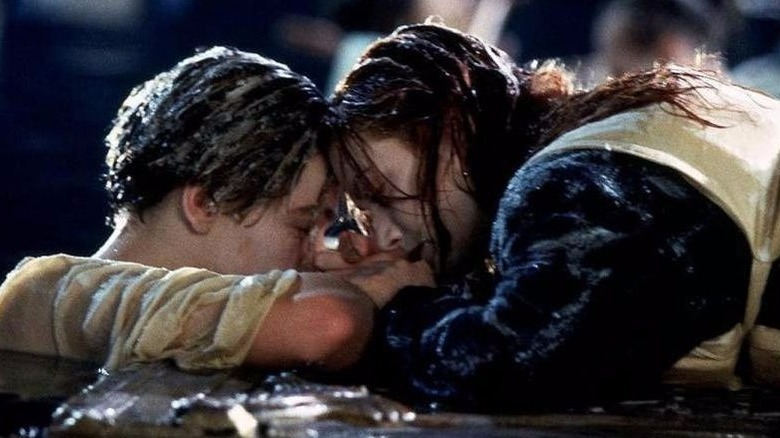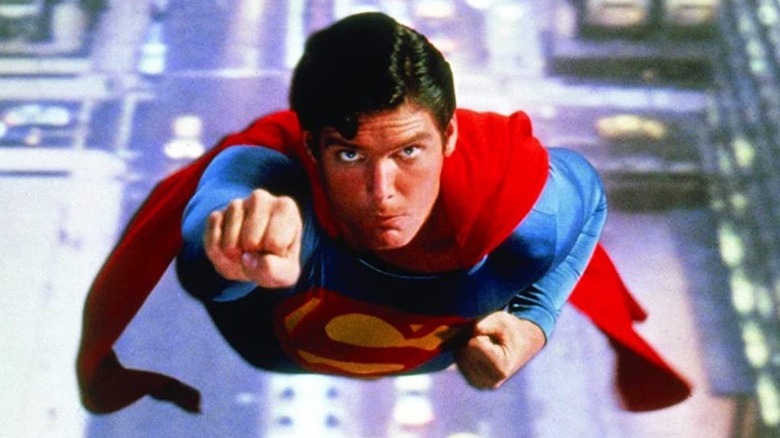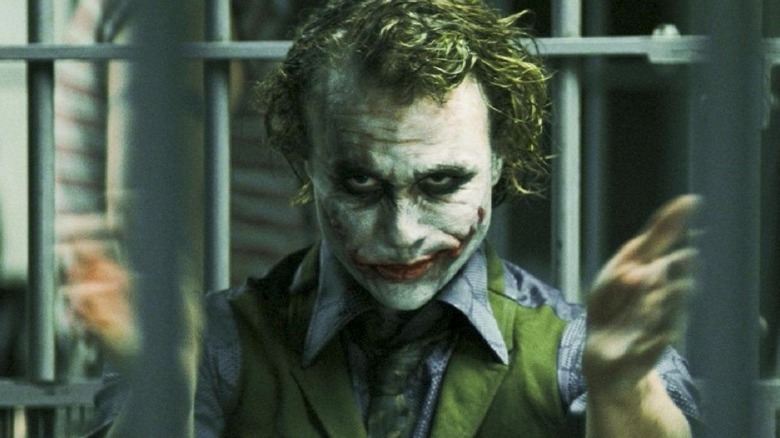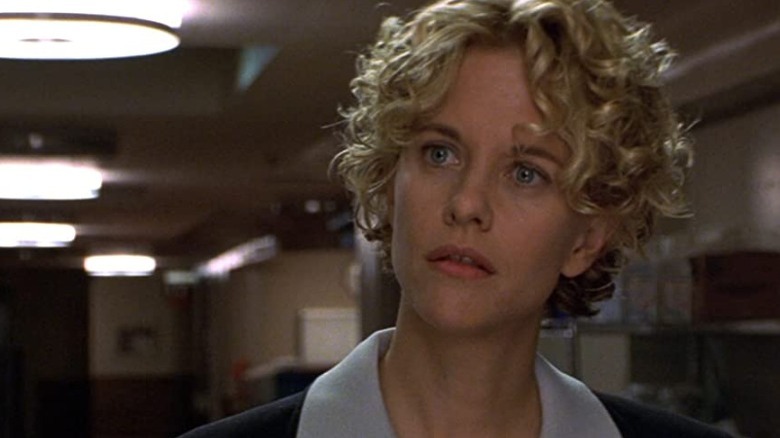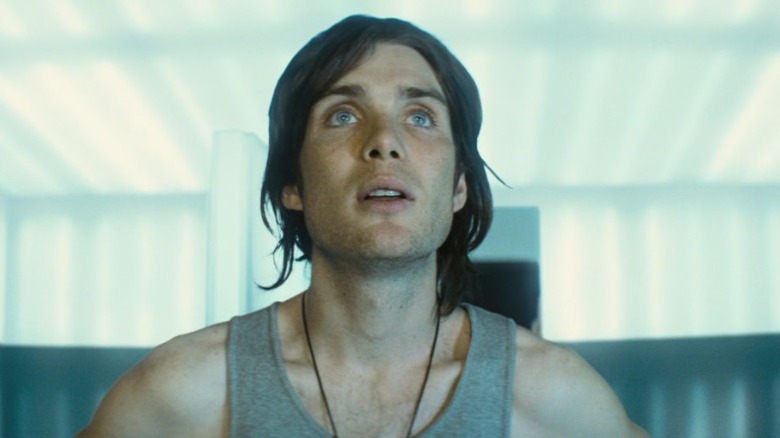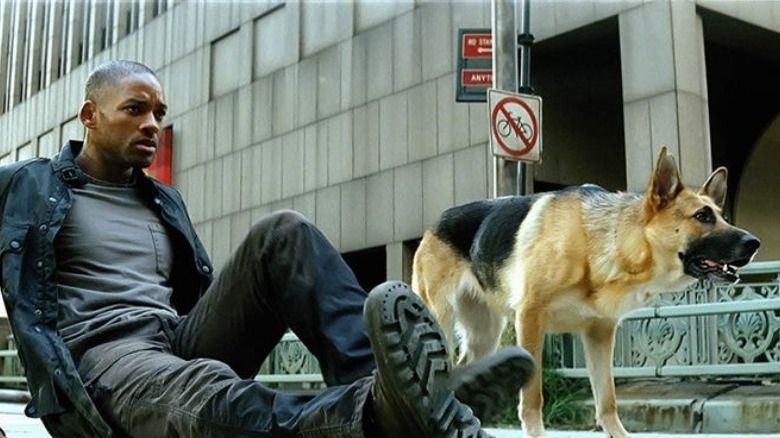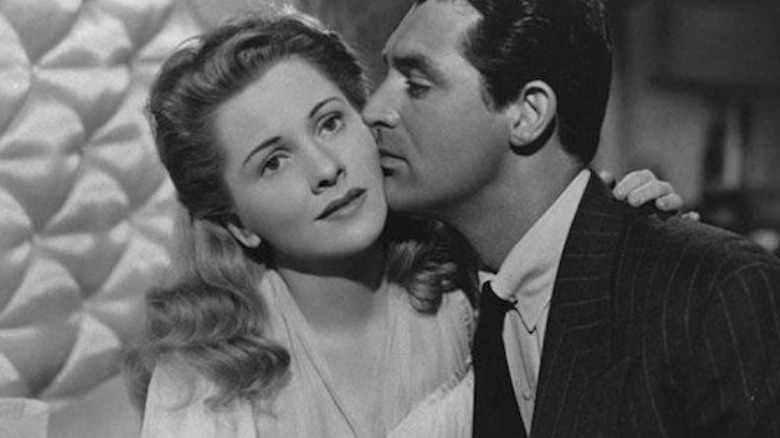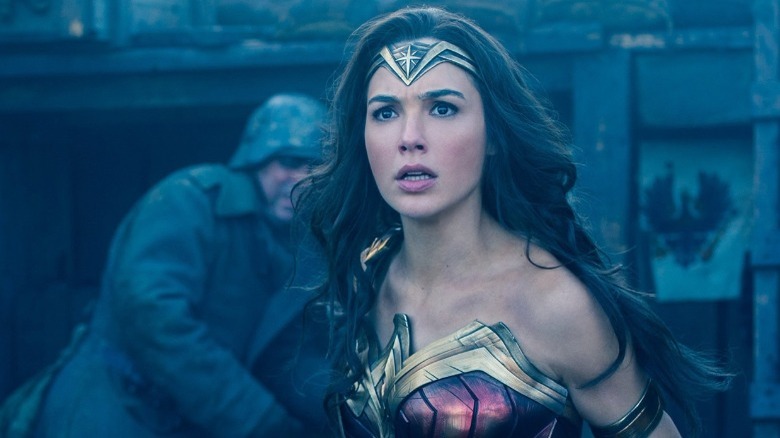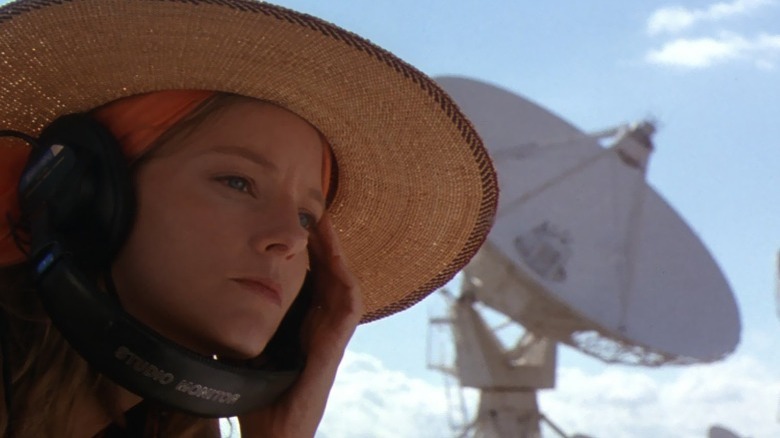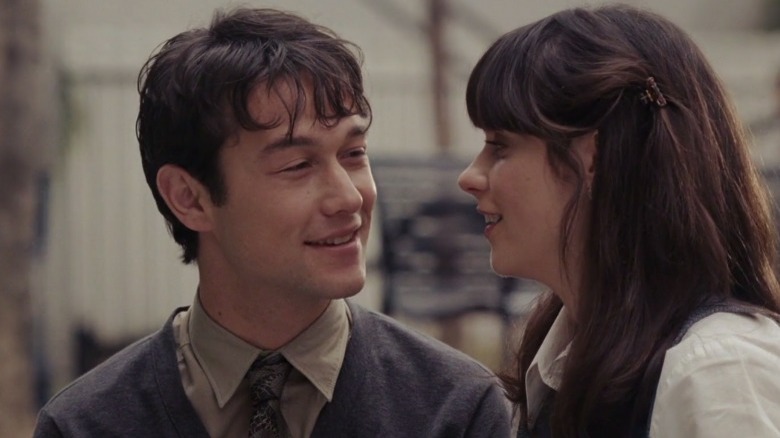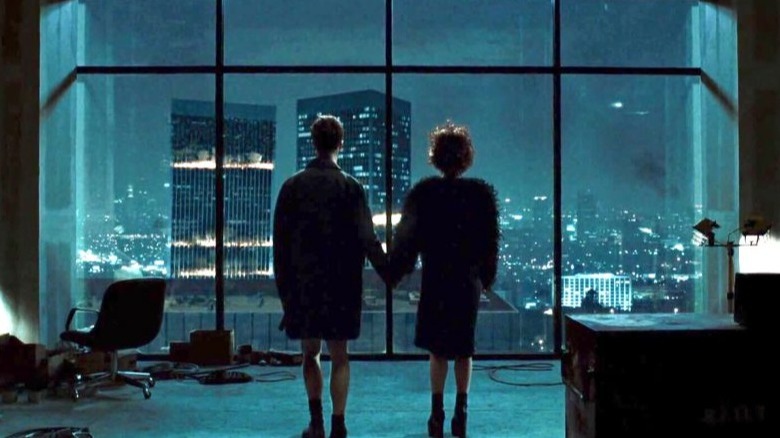Terrible Endings To Otherwise Incredible Movies
Movies aren't easy to make. They take financing, patience, the assembling of a cast and crew — they're impossibly immense logistical nightmares, even the smallest productions. They're complicated, intense achievements that you could compare to a difficult gymnastic routine: even the gold medalists can stumble a bit on the landing. Fortunately, endings only occupy a fraction of a movie's overall runtime, so many films achieve greatness even if their endings leave something to be desired.
A bad ending can be the result of obvious studio interference, or it can come naturally to a film that just doesn't quite know how to end gracefully. Endings can muddle the entire theme or message of a movie, unraveling what could otherwise be a powerful social statement with an afterthought. An important character's death might seem like it gives a movie meaning, but oftentimes just seem cruel and tacked on if not handled elegantly. Be warned, naturally, of SPOILERS for any of these classics you haven't seen. Here are some terrible endings to otherwise incredible films.
Titanic
1997's "Titanic" became one of the highest-grossing movies ever by weaving a fictional love story together with an epic tale of disaster and survival. At the very end, it posits that love would be so strong that it would override Leonardo DiCaprio's otherwise resourceful Jack from following his survival instinct, and he freezes to death in the water holding hands with Kate Winslet's panicked Rose. Doorgate has raged on ever since: couldn't Jack have fit on there too?
It's not necessarily a bad ending that Jack dies in the first place: it would be a little bit of a cheat to have both members of our star-crossed young lovers survive a movie about one of the deadliest shipwrecks in history. But "Titanic" knocks itself down a beat by the actual mechanics of the death itself. Wouldn't Jack have found another piece of wreckage to float on? Could he and Rose have taken turns on the door? "Titanic" is endlessly rewatchable, but to see Jack just kind of nod off and stop trying after fighting to survive for two and half hours is frustrating each and every time. Everyone from the Mythbusters to Neil DeGrasse Tyson have weighed in over the years, as "Titanic" has an ending with such a clear flaw it invites theory after theory.
Superman
Unlike, say, 1989's "Batman," Richard Donner's "Superman" hardly ever gets mentioned in the discussion of great superhero movies despite generally being remembered well by critics. It even has arguably one of the greatest casts in a comic book movie, as Christopher Reeve's likable Caped Crusader gets to play off of Gene Hackman's Lex Luthor and Marlon Brando as his father Jor-El. But the sheer absurdity of the ending has probably kept "Superman" a little less relevant in our cultural memory.
After failing to prevent missiles from hitting the San Andreas fault — which leads to Lois Lane's death — a distraught Superman flies around the Earth so fast that it stops in its orbit and begins to spin backwards. And this somehow reverses time, allowing Superman to save Lois's life and keep the entire West Coast from falling into the sea. Now obviously, a movie about a super-powered alien being from Krypton doesn't have to be the most plausible thing in the world, but this twist is altogether too much to bear. Since the plot hinges on the San Andreas fault, it's a bit much to ask the audience to ignore how much damage stopping the Earth's rotation would cause, let alone that time just doesn't work that way.
The Dark Knight
One of the all-time greatest superhero movies, "The Dark Knight" has an ending that doesn't quite hold up the more you think about it. The entire last half hour of an already long movie contains two sequences that strain credulity in service of the plot. First, the Joker's nearly omniscient ability to predict everyone's behavior fails him, as the two ferry boats rigged with explosives don't go off. One boat is full of prisoners, the other full of civilians, and they each have the detonator for the other: it's like something out of a high school ethics class, and the overwrought debate on each boat includes some of the most pained dialogue in the whole trilogy.
In addition, while the final monologue from Jim Gordon about how Batman is "the hero Gotham deserves, but not the one it needs right now" is well-delivered and sounds compelling, the actual plan is pretty nonsensical. Batman is going to take the blame for the crimes committed by a grief-mad Harvey Dent, even though Batman was publicly fighting the Joker's goons when a lot of them went down, there are multiple witnesses that saw Dent at various points, and Batman's whole reputation is as a vigilante, not a random cop-killer? Why not just say you don't know who committed the murders? The need to preserve Dent's reputation as a force for good makes thematic sense, but why involve Batman in the coverup at all?
City of Angels
Romantic movies, usually ones based on Nicholas Sparks novels and the like, often have one of their lovers die tragically at the end to give the whole story more meaning. It's a cheap trick, but it works well enough. "City of Angels," a surprisingly moving movie in spite of its unbearable earnestness, is a remake of a classic Wim Wenders movie that succeeded on the strength of the chemistry between stars Nicolas Cage and Meg Ryan. Cage plays an angel who decides to become mortal after falling in love, so the stakes are already life or death in a certain sense.
The movie then, in a completely unnecessary twist of the knife, has Ryan's character senselessly die in a bicycle vs. logging truck collision. It's cruel, abrupt, and doesn't add anything to the film. Cage's character has already given up immortality to be with her, and learned the value of a mortal life in the process, and then is forced to live it alone. The film that "City of Angels" is based on, Wim Wenders' classic "Wings of Desire," explores the same themes with more depth — and without the ham-fisted twist at the end.
Yesterday
"Yesterday" is a fun movie that sabotages itself by hinting at something more complicated than it turns out to be. The magical premise, about a struggling musician who wakes up in an alternate world where the Beatles never formed, is a great excuse to pack in a ton of Beatles covers and tell a breezy story about the perils of fame. Himesh Patel, Lily James, and a hilarious Kate McKinnon lead a cast full of delightful music industry cameos. "Yesterday" is great fun, but unfortunately it needed a plot of some sort to carry it along.
Two mysterious figures haunt the main character here and there, and seem to know he didn't actually write any of these songs himself. Their looming presence and a portentous dream sequence imply heavily that there's more to this alternate, Beatle-free reality than initially meets the eye. But in the end it turns out there isn't: they were just two other people who also happen to remember the Beatles, and are happy that Jack brought their music back to life in the other reality. Then in a supremely tasteless touch, Jack meets a still-alive John Lennon, who seems perfectly content never to have formed the Beatles, and decides to give up the spotlight himself. "Yesterday" ultimately says nothing coherent about fame, and bites off more than it can chew by trying to create intrigue when it should have kept its premise simple and straight ahead.
Sunshine
For most of its runtime, Danny Boyle's "Sunshine" seems poised to join the likes of "2001: A Space Odyssey" and "Solaris" as a meditative, profound space movie. On a mission to reignite the dying sun, the crew of the unfortunately named Icarus II suffer various mishaps, some of them fatal, and watch the sun grow impossibly larger in the viewscreen as the tension builds. Astonishing visuals and an operatic sensibility contribute to an ethereal mood. But two thirds of the way through, "Sunshine" turns into a slasher movie out of nowhere.
When the ship comes across the derelict Icarus I, the failed mission that proceeded them, the captain has lost his mind and spent seven years going mad. Not only is he improbably still alive, his "sun madness" has also given him absurd supernatural strength that he uses to kill nearly all of the remaining characters in a finale that's rushed and relies on cheap action thrills. Humanity is on the verge of freezing to death; space is perilous enough to navigate without adding a weird sun-baked supervillain into the mix in the third act. "Sunshine" is still pretty good, but it could have been something truly great.
I Am Legend
"I Am Legend" is a solid, B+ vampire movie when considered on its own merits. Will Smith plays the (seemingly) only human immune to a virus that has turned people into very vampire-like creatures, and spends his days hunting them down in the company of his dog sidekick. In the end, he meets another survivor and her son, and sacrifices himself to save them as well as a potential cure for the virus. All well and good.
But if you've read the original Richard Matheson novel that it's based on, "I Am Legend" has tacked on an ending that's offensively saccharine and even sells out the meaning of the title of the story itself. In the book, the main character realizes with dawning horror that the infected humans are still conscious, feeling beings that are attempting to rebuild society. Not only are they far from the monsters he assumed, he in fact has become the monster to them. "I Am Legend" did include an alternate ending on the DVD release that had a version closer to the book's ending, but the theatrical cut has one of the worst revisions of all time.
Suspicion
"Suspicion" is a case of how studio interference can drastically alter a film, but also a case of how even a nonsensical ending doesn't necessarily ruin it. Alfred Hitchcock's 1941 thriller is about a handsome playboy, played by the debonair Cary Grant, who turns out to be a deadbeat and a gambler. His new wife (Joan Fontaine in an Oscar-winning performance) begins to suspect that he's plotting to kill her for the insurance money. The tension builds and builds as more of his behavior carries dark undertones: he asks a friend about untraceable poisons, he speeds recklessly and nearly throws her from the car.
In the end, he breaks down and claims to be suicidal himself over being destitute, and the two lovebirds vow to see it through together. But Hitchcock's original intention was to have him poison her with a glass of milk and end up incriminating himself ironically. The studio didn't want Cary Grant to be the bad guy, so the movie changed entirely into one giant fake-out. It somehow still works, because the story, like the title says, is more about the suspicion than the answer itself. But it would have a much higher reputation if Hitchcock had been allowed to really go for the jugular, as he would later do with "Psycho."
Wonder Woman
For the most part, 2017's "Wonder Woman" is a triumph and a breath of fresh air in the superhero genre. In addition to being the first major film led by a female character in the DCEU (or MCU, for that matter), it also brightened the DCEU's grim aesthetic with the gloriously shot sequences on Wonder Woman's Amazon homeland Themyscira. Gal Gadot's fish-out-of-water performance brought an earnestness to the character's desire for peace that made the sequences set in WWI surprisingly compelling.
But in the end, big bad villain Ares shows up and the movie devolves into yet another CGI slugfest, the hallmark of countless other comic book movies settling into low effort mode for the endgame. With very little development, and not much to do with Wonder Woman personally other than standing for war when she stands for peace, Ares is a supremely forgettable villain that's barely even intimidating. There's no believable threat to Wonder Woman, and the only drama in the end is the sacrifice of her love interest, Steve Trevor. "Wonder Woman" still stands out, but it could have tried a little harder to development a climax that went beyond a bunch of computer generated sound and fury, amounting to nothing.
Contact
Although it stays true to the hard sci-fi, academic nature of the Carl Sagan novel it's based on, 1997's "Contact" is a big buildup to a mild letdown. Jodie Foster stars as a researcher listening for signs of alien life from space who finally discovers a signal. It turns out to have the instructions encoded to build a huge apparatus that can transport people through wormholes. After a terrorist attack destroys the first machine, Foster's character finally suits up for the journey.
It turns out to be a sequence of wormholes that are hardly more advanced CGI than a screensaver, a few cool views of other star systems, and a visit with an alien entity that takes on the form of her late father, who tells her that this is "just a first step" in what will eventually be an intergalactic wormhole subway system that connects Earth with other planets, or something. She returns with no proof of what happened except 18 hours of static on her recorder, which is somehow enough to satisfy a skeptical congressional inquiry.
500 Days of Summer
Marc Webb's charming romantic comedy "500 Days of Summer" pretends to be something more subversive by announcing its intentions in the beginning. "This is not a love story," it tells us flatly, and begins the story of romantic sap Tom trying to maintain a casual relationship with the detached Summer (of the title). He believes in love, but she doesn't. The chemistry between Joseph Gordon-Levitt and Zooey Deschanel is palpable, and the movie has fun with its central conceit by showing Tom's "expectation" vs. "reality."
But of course the movie believes in love after all, just not between these two people. Summer eventually dumps Tom and gets engaged to someone else later, because it just "felt right." There's not much discussion, and no indication of why she changed her entire philosophy about love based on a gut feeling. Tom gets a meet-cute with someone new at the very end, with the groan-inducing name of Autumn, and has the same instantly smitten look on his face, having learned nothing. What could have been an interesting rumination on the idea of love versus the harsher reality of dating becomes a decent but more forgettably traditional romcom.
Fight Club
"Fight Club" is another example of a radical alteration of source material that drastically undercuts the meaning of the story. In Chuck Palahniuk's nihilistic novel, Tyler Durden's grand plan fails and the bombs don't go off. The narrator successfully vanquishes Tyler by shooting himself the same way, but gets committed to a mental institution and is still haunted by the movement he's created. It's bleak and doesn't have the neat, cinematic bow that the film version went with.
The movie blows up the skyscrapers, brings down the system, and drops the needle on The Pixies' "Where Is My Mind?" in an ending that's undoubtedly fantastic cinema, but takes the wrong lesson away from its own story. Why did the narrator have to get rid of Tyler if he turned out to be the hero? He's left with Marla, an army of Space Monkeys still at his disposal, and a clean slate instead of the ruins of a shattered life. "Fight Club" is perhaps too well made, aesthetically speaking. David Fincher made violence look so cool he obscured the lesson that it isn't the answer to anything.
